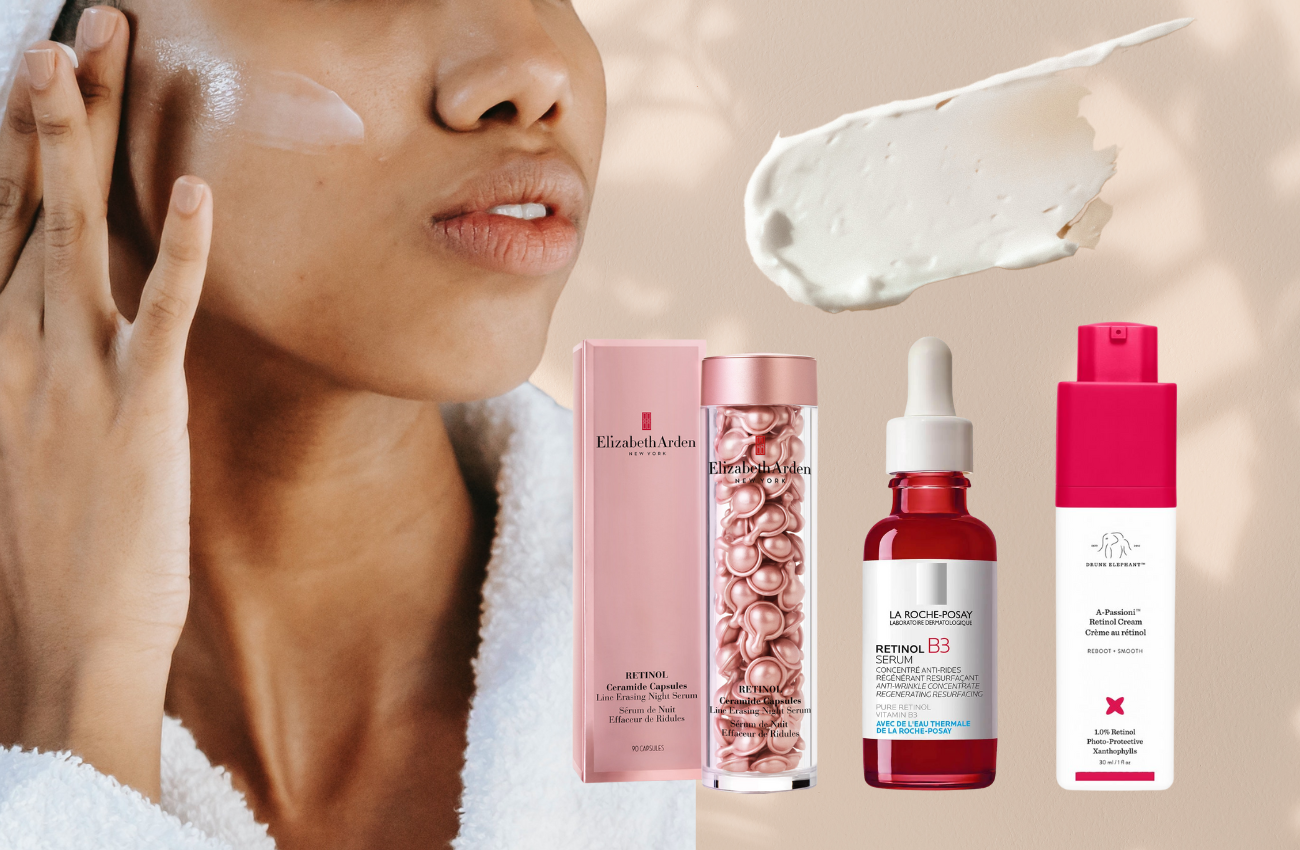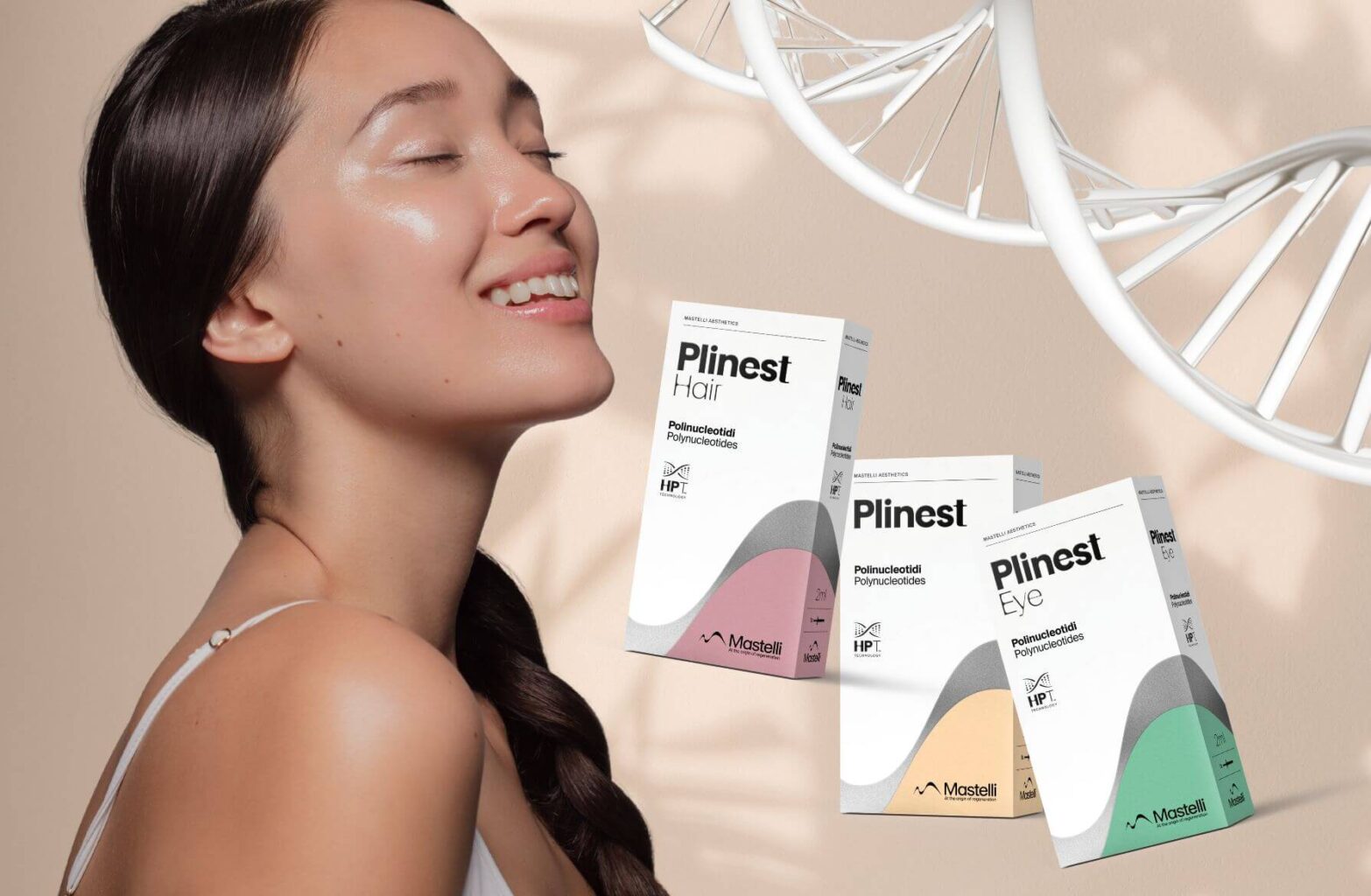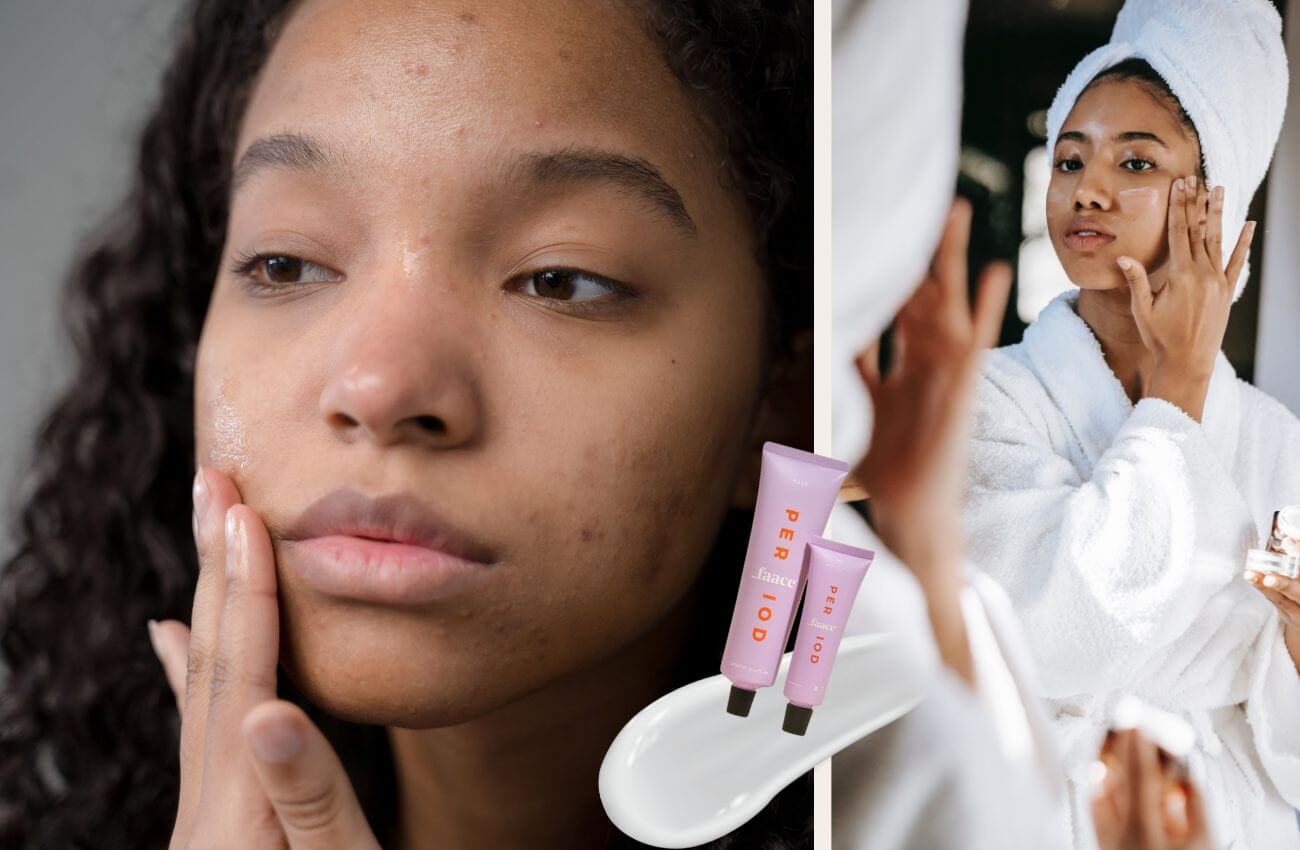Retinol is one of these active ingredients that has been on everybody’s lips over the last couple of years and for good reason. As more and more women add Retinol to their daily routines, we thought we would fill you in on what does retinol do and how does it work as well as how to include it in your daily skincare routine and our product recommendations.
What does retinol do and how does it work?
The burning question in everybody’s mind: what does retinol do and how does it work? Retinol is a form of Vitamin A included in many skincare products. It is used to help treat both acne and has anti-aging effects which many women swear by. Depending on the strength of the product, a prescription can be needed. But for lower doses of Retinol, you can find many products over the counter in beauty stores and online. Retinol works by increasing skin cell production, unclogging pores and increasing collagen by neutralising free-radicals deep inside the dermis.
Who should not use retinol?
Before finding out what does retinol do and how does it work, it’s important that you first find out if it’s right for you. Retinol is not recommended for anyone with very sensitive skin. It’s also not recommended if you’re pregnant or nursing. If you suffer from a skin condition like eczema or rosacea it’s also best to check with your dermatologist before using retinol as it can worsen the condition.
What are the benefits of retinol?
Retinoids can help treat the following:
- Fine lines and wrinkles
- Clogged and enlarged pores
- Acne
- Acne scars
- Sun spots
- Hyperpigmentation
If your aim is to get rid of acne, we would recommend first consulting with a dermatologist as they may recommend trying a stronger prescription Retinol product or something else entirely.
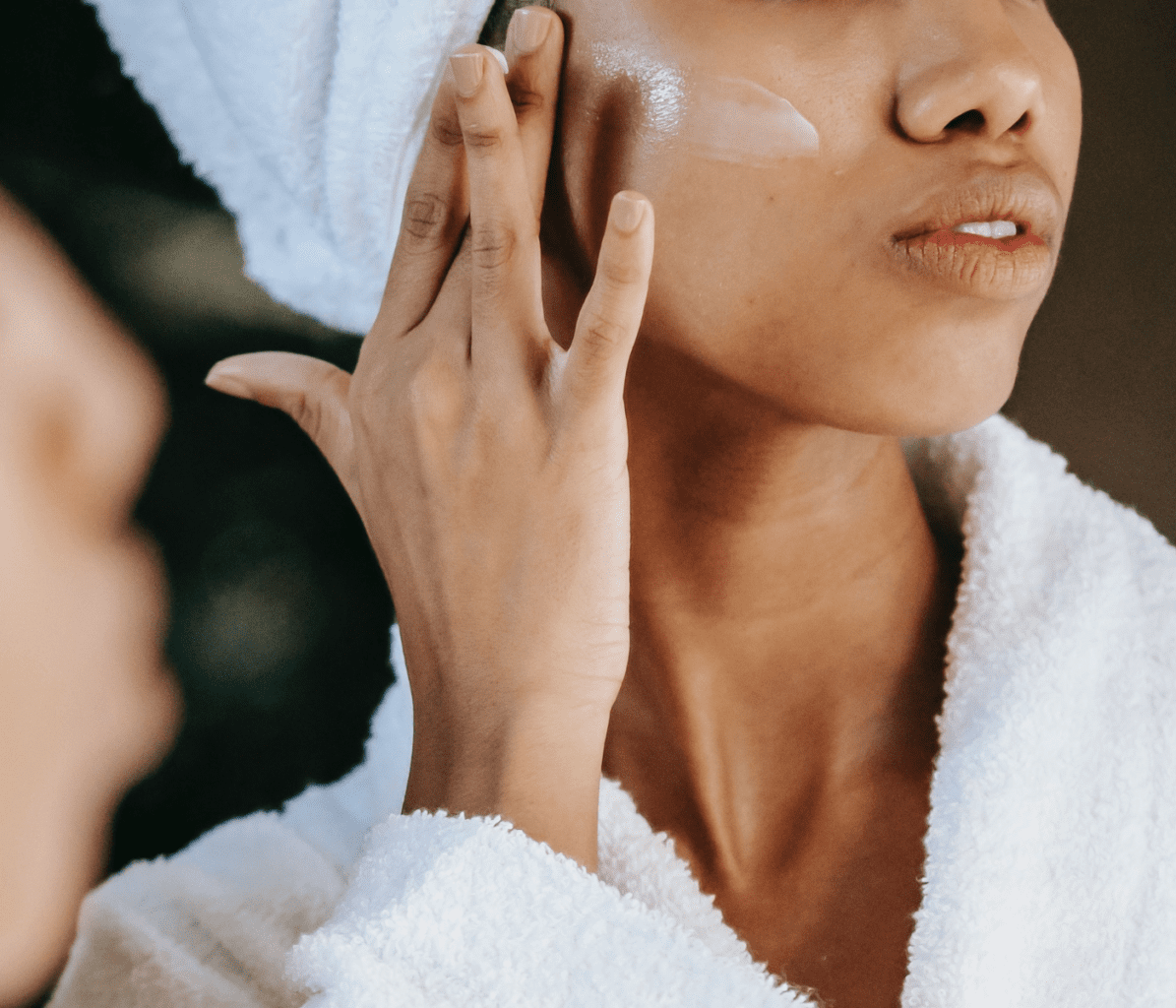
What you should know before using retinol?
When it comes to finding out what does retinol do and how does it work, it’s crucial that you follow-up the below guidelines. Retinol is an amazing skincare ingredient but can make skin more sensitive so here are things you should know before trying this skincare ingredient:
- It increases skin cell turnover and can make your skin temporarily more fragile. This is why you should stop applying any products with retinol a week prior to waxing and always inform anyone doing a facial or other skin treatments that you are using retinol
- SPF should always be used
- Due to sun sensitivity, it is recommended that you apply any retinol products in the evenings and use Vitamin C in the morning as your active ingredient instead
- Apply on completely dry skin or you may experience some itching, particularly if you’ve never used it before
- If any redness or burning sensation occur, make sure to rinse your face with clear water and discontinue use
At what age should I start using retinol?
Most women start using retinol from age 25 as that’s when your natural collagen start to slowly decrease and you might notice first signs of ageing. Before age 25, you can still use retinol for issues with acne although we recommend discussing with your dermatologist first as they may offer alternative treatments first.
How long does it take to see results?
You may notice your skin feels smoother and more plump after just a couple of uses. Many women have also reported feeling like their overall complexion improved after just a couple of uses. After a couple of weeks of continued-use, you will start to notice improvements in fine lines, acne scars and hyperpigmentation. You may also noticed a reduction in new acne lesions after a couple of weeks although acne is a complex issue so best to consult your dermatologist for regular follow-ups and progress checks.
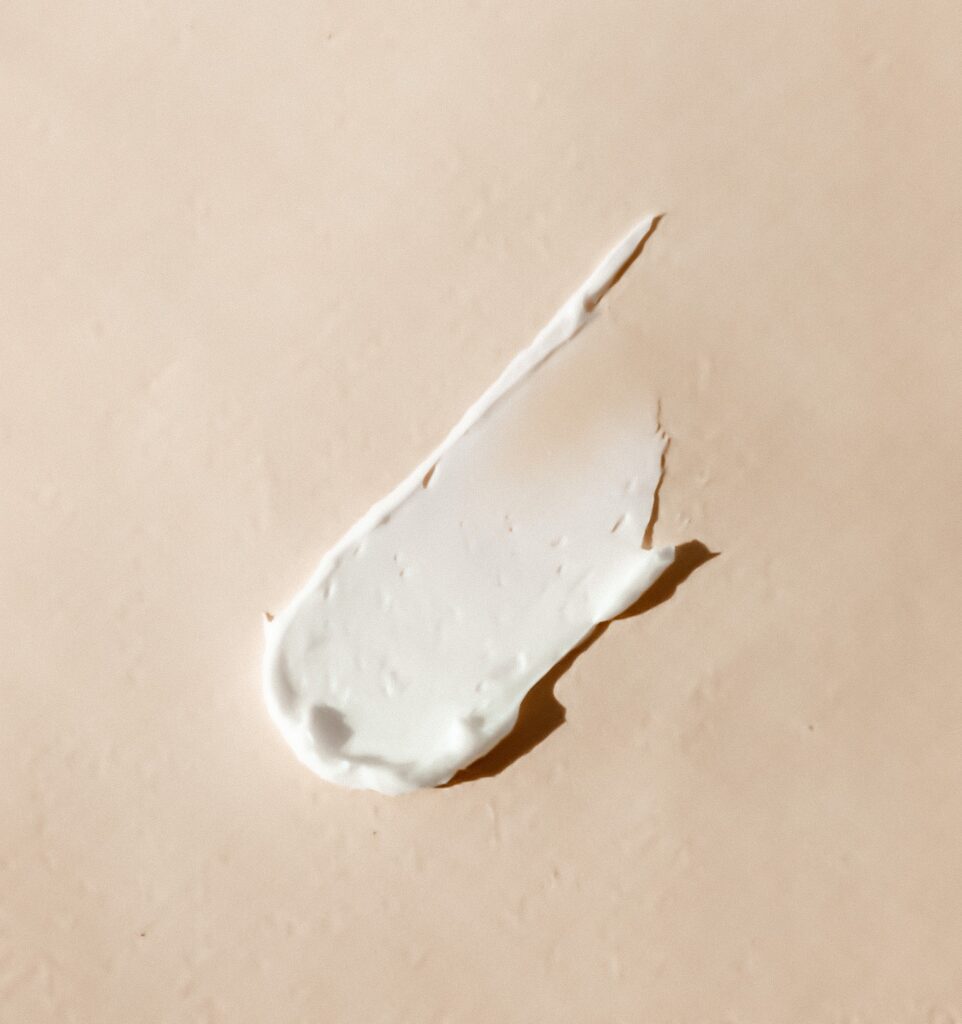
Is it ok to use retinol every day?
This all depends on your skin type and how long you’ve been using retinol. If you’re just starting using retinol and/or have sensitive skin, then you might benefit more from using only once or twice a week and slowly building up. If you’ve used retinol products before and don’t have a particularly sensitive skin, then you can use retinol every day. If any irritation occurs though it’s a sign you’re overdoing it and you might want to slow it down.
Can I mix other products with retinoid?
When it comes to finding out what does retinol do and how does it work, you might be wondering if you can continue using your usual skincare products with it. This all depends on the products that you want to use. Retinol is generally safe to use with other skincare ingredients although we don’t recommend applying retinol at the same time as exfoliating acids (AHAs or BHAs) as this will be too harsh on your skin. If you still want to use exfoliating acids in addition to retinol, try cycling your products: first evening retinol, second evening moisturiser, third evening exfoliating acids, fourth evening moisturiser. And start the cycle again. This will ensure that you space out applications and give your skin a chance to recover.
When it comes to Vitamin C, it is safe to use both together but probably won’t do you much good as Retinol and Vitamin C tend to cancel each other out. Instead try to use Retinol in the evening and Vitamin C in the morning to get the full effects of both ingredients.
Other than that, you should be fine to use it with your regular moisturiser as long as you wait a few minutes in between applications.
Best retinoid products
So you now know what does retinol do and how does it work. If you’re convinced to give it a try, here are our top picks with all the pros and cons of each product. When it comes to retinol, safe to say our team has tried many of them so you can trust our word.
A313 Pommade
This french retinol product is one of our all time favourites which we keep buying on repeat. In fact we already featured it in our article on Cult French Skincare Products You Should Try so make sure you check that out. Quite quickly, we noticed an improvement in the overall skin texture and complexion and with continuous use we can see fine line and hormonal spots reduction.
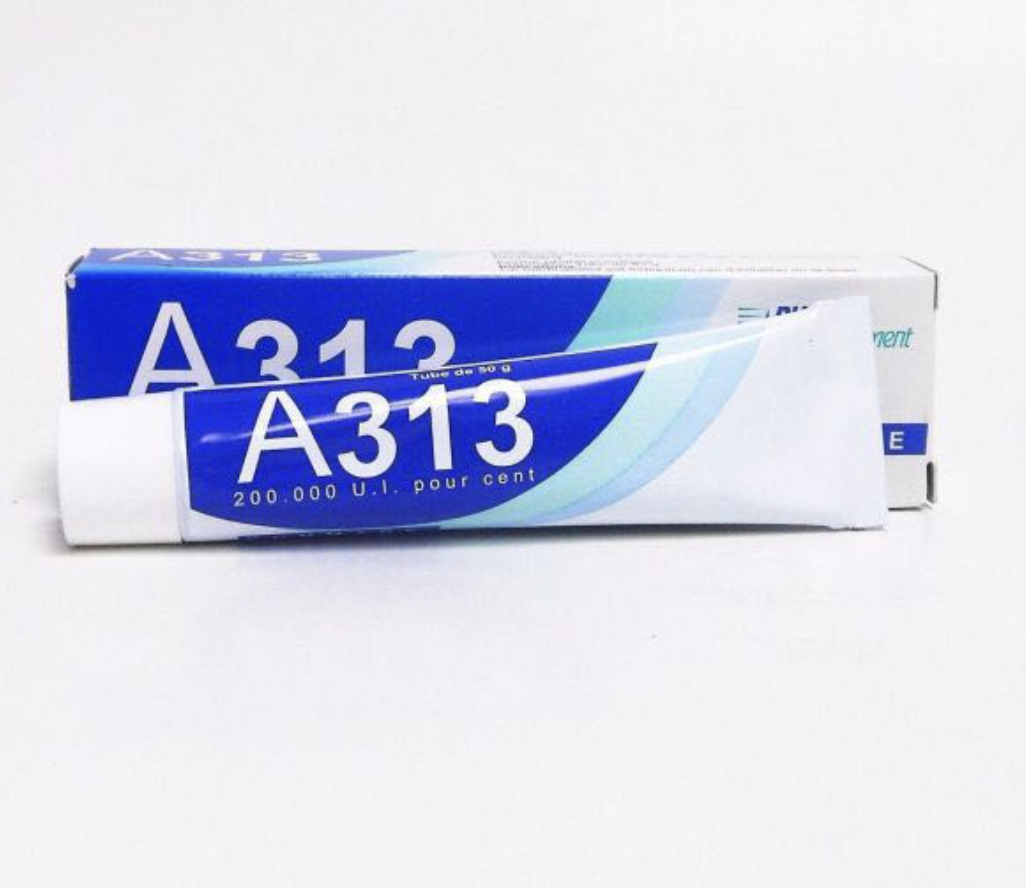
Pros: this stuff just works! It’s quite common when trying new skincare products that you don’t notice a huge difference in your skin. But not with this. Everyone we have spoken to that has tried it has noticed quite a major difference in their skin. We also love that it’s much cheaper than a lot of less effective retinol products on the market. We also love that there’s not artificial fragrance added.
Cons: Let’s be honest the packaging and name is giving more haemorrhoid cream than it is retinol cream but do not let that deter you. The thick and sticky pommade texture can also be slightly off putting when applying and can take a while to fully sink in. This product throws a serious punch so you may also notice some itching when you first start using. If that’s the case, we recommend starting with a lower dose retinol product and working your way up to A313.
Drunk Elephant A-Passioni Retinol Cream
If you’re not yet familiar with Drunk Elephant, now is the time to try. And what better way to start than their A-Passioni Retinol Cream. Their cutting-edge formula combines 1.0% vegan retinol with nourishing, superfood-rich ingredients. Their formula is gentle on the skin and yet the results are there within just a couple of weeks.
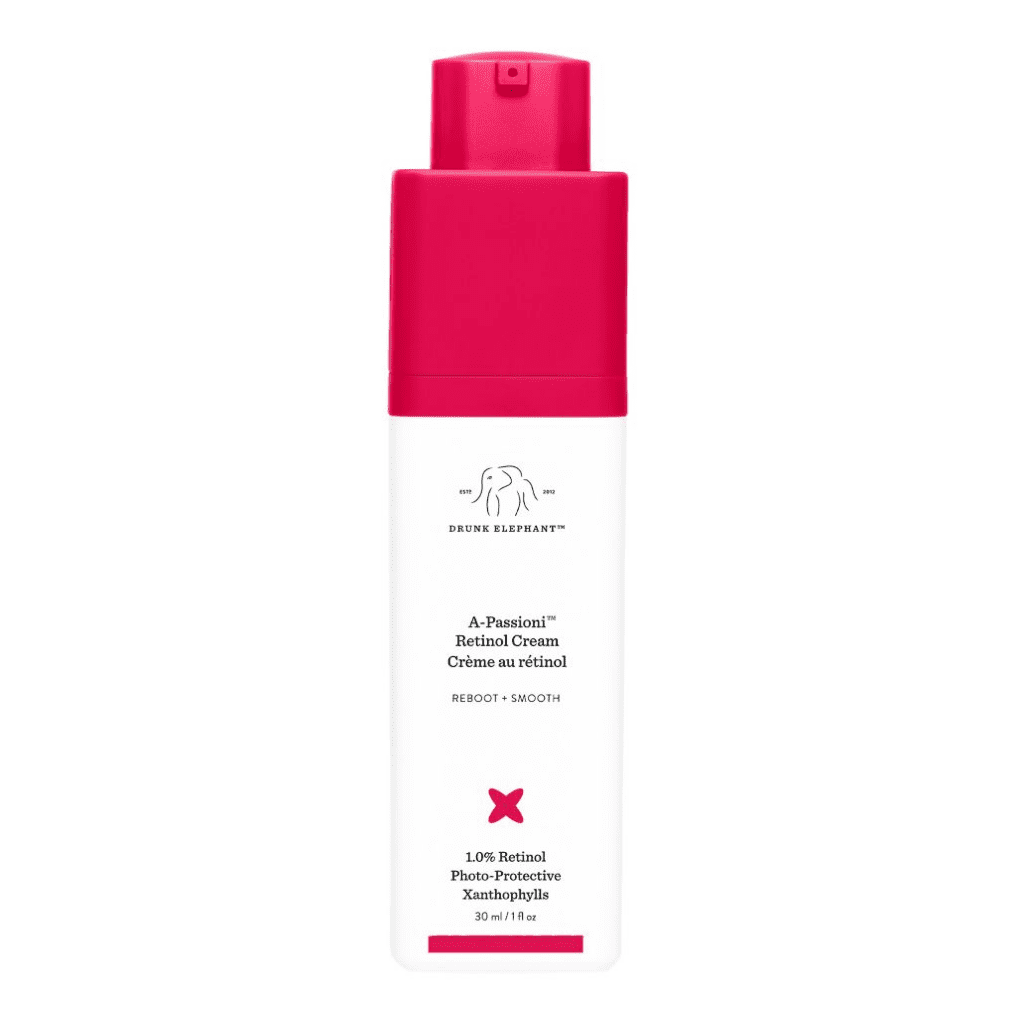
Pros: We love their vegan and cruelty-free formula packed with a triple peptide blend, Vitamin F and Xantophylls. It’s a gentle yet highly effective formula which makes it a great option for those with sensitive skin. We also love their packaging and the fluidity of the cream.
Cons: Priced at over £50 for 30ml, this is not the cheapest option although it is a mid-range price for a retinoid product. For us, this one doesn’t pack as much of a punch as A313 so results are a bit slower to come but it’s a great product to start your retinol journey with.
La Roche-Posay Retinol B3 Anti-Ageing Serum
A great option for those who prefer a serum rather than a cream, La Roche-Posay Retinol B3 Anti-Ageing Serum is a favourite of many dermatologists and influencers. It combines both Retinol and Vitamin B3 as the main active ingredients for a smooth and hydrated complexion.
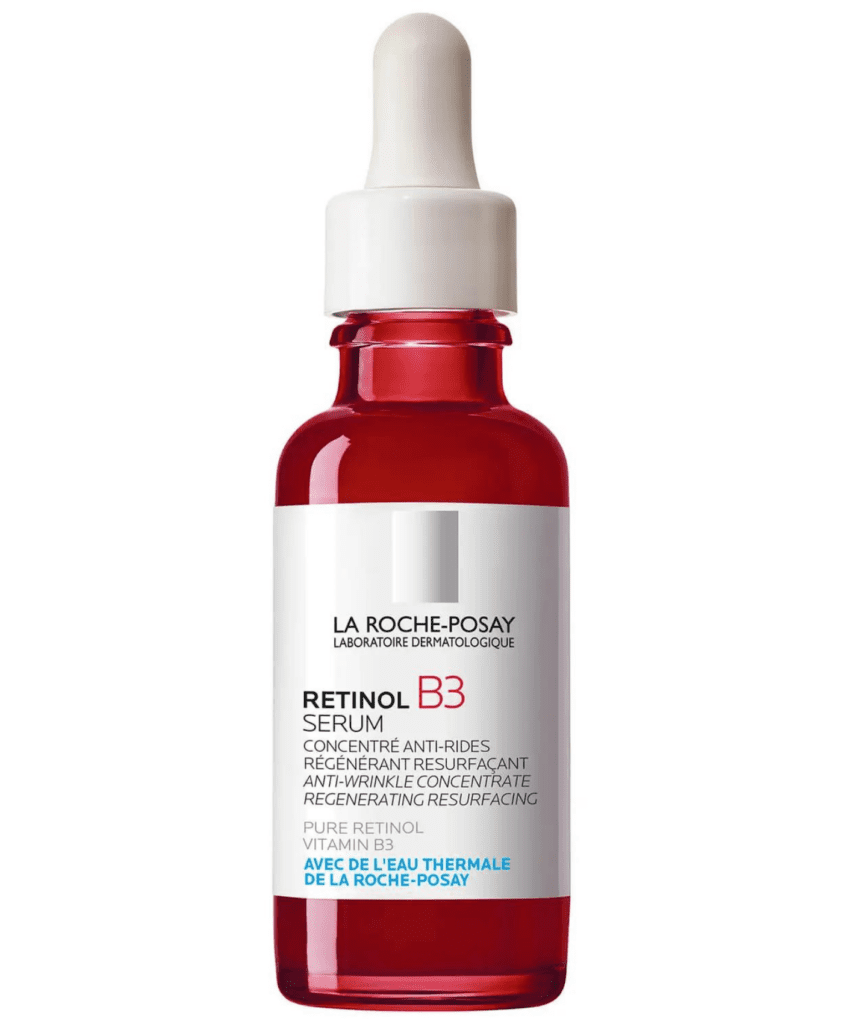
Pros: a very fluid formula that sinks into the skin very quickly. Effects do take a while to be really noticeable but the formula is very gentle even on sensitive skin. We love the ease of application and the price is still reasonable for a super effective product.
Cons: the serum consistency can be a bit runny so the application takes some getting use to compared to cream formulas. The fragrance can also be a little overwhelming so if you’re sensitive to artificial fragrances this is sadly not the one for you.
Elizabeth Arden Retinol Ceramide Capsules Line Erasing Night Serum
If you want to try incorporating retinol into your daily routine but don’t want to give up on your favourite moisturiser or night cream, these little capsules are the obvious choice for you. Simply add your usual quantity of moisturiser to the palm of your hand or back of your hand, break open the little capsule and mix that in with your moisturiser.
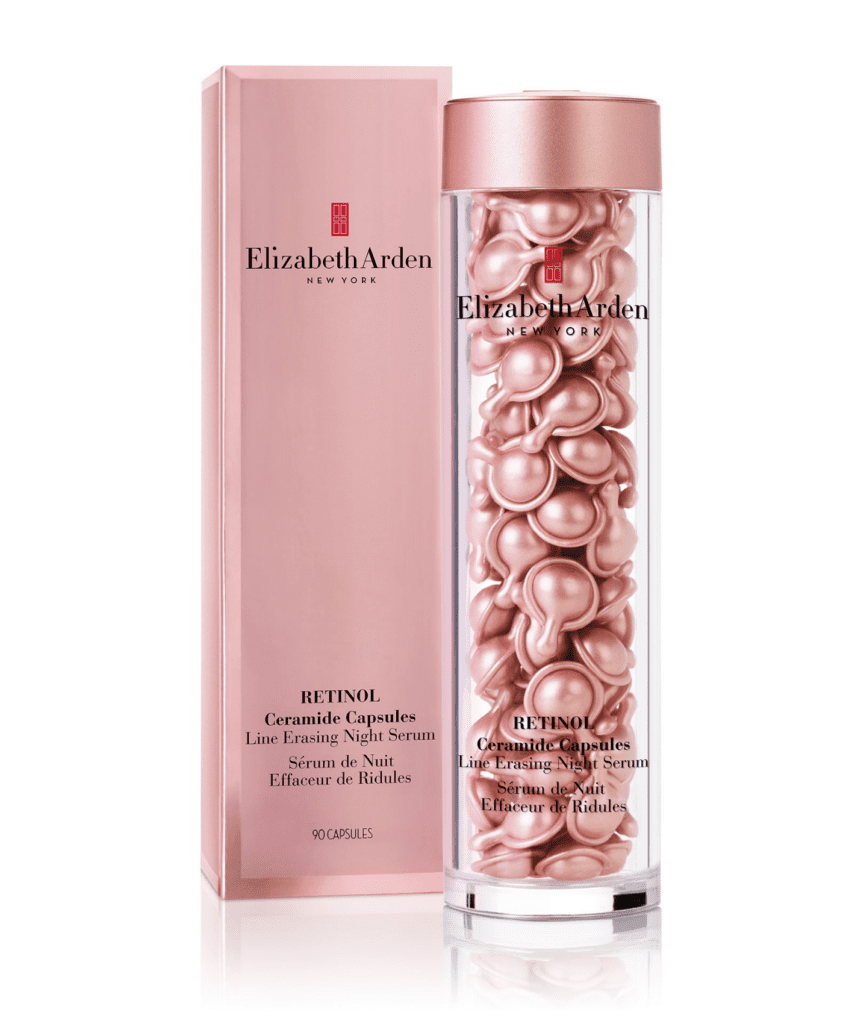
Pros: we love that we can carry on using our favourite moisturiser and just add the retinol capsule as and when we need it. The formula is great and results are noticeable with continued-use. The packaging is super luxe which we love.
Cons: this isn’t the right product for someone who wants to be done with their night-time routine quickly. The added step of mixing in the capsule with your usual moisturiser can be a little finicky so if you’re a fan of efficiency, we recommend going for a cream or serum that contains the retinoid to avoid this extra step.

